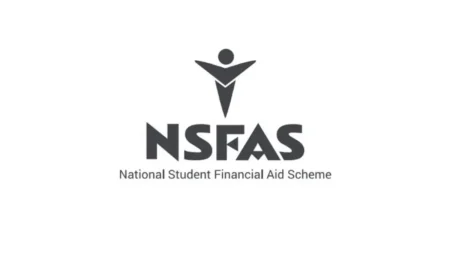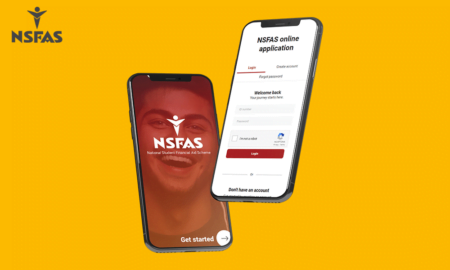Student housing is an essential part of a student’s journey, especially for those who are far from home. The National Student Financial Aid Scheme (NSFAS) plays a critical role in assisting students who require financial aid to pursue higher education in South Africa. While many students are successful in securing funding for their tuition, textbooks, and even accommodation, it’s not uncommon for applicants to face rejection for student housing.
If NSFAS has rejected your student housing application, it can feel like a huge setback. However, there are still steps you can take to resolve the issue and secure the accommodation you need.
Understanding the NSFAS Housing Application Process
Before diving into solutions, it’s important to first understand how the NSFAS housing application process works. The NSFAS student accommodation funding is part of their broader financial aid package, which provides support for tuition fees, textbooks, and living expenses.
Typically, students who qualify for NSFAS funding are eligible to receive accommodation support, either in university-managed residences or private student accommodation approved by NSFAS. However, certain conditions apply to eligibility, such as meeting academic performance standards, ensuring that accommodation fees fall within NSFAS limits, and adhering to the submission of the required documentation.
When NSFAS rejects a student’s housing application, it’s important to understand the reason for the rejection. The rejection could be due to various factors such as incomplete applications, missing documentation, exceeding accommodation limits, or even issues related to eligibility criteria.
1. Check for Mistakes or Missing Information
The first step after receiving a rejection is to carefully review your application. Mistakes or missing information could be the cause of the rejection. Ensure that all sections of your application are filled out completely and accurately. Sometimes, a simple clerical error such as an incorrect ID number, missing signatures, or unsubmitted forms can result in an automatic rejection.
2. Review NSFAS’s Eligibility Criteria
It’s also essential to familiarize yourself with NSFAS’s eligibility criteria for housing support. NSFAS has strict guidelines regarding the types of student accommodation it will fund. For example, it may only cover university-run accommodation or accredited private student residences that meet certain conditions. Check whether your chosen accommodation falls within these parameters.
Additionally, NSFAS often places caps on how much they will contribute to student accommodation. If the accommodation you applied for exceeds these limits, your application may have been rejected. It’s important to confirm whether your accommodation costs align with NSFAS’s funding limits.
3. Contact NSFAS for Clarification
If you are unsure why your housing application was rejected, don’t hesitate to contact NSFAS directly. They can provide you with specific details regarding the reason for rejection and any possible steps you can take to rectify the situation.
You can contact NSFAS through their helpline, via email, or by using their online portal. Make sure to have your student number and application details on hand for a more efficient conversation. Ask for clarity on the rejection and inquire about possible avenues to appeal the decision.
4. Appeal the Decision
If you believe your application was wrongly rejected, NSFAS allows students to lodge an appeal. The appeal process typically involves submitting a formal request to reconsider the decision, accompanied by any additional supporting documents.
To appeal successfully, it is crucial to understand the appeal process. NSFAS may require you to provide additional evidence or documentation to substantiate your claims. For example, if your rejection was due to incomplete forms or outdated information, you will need to submit updated versions. Follow the appeal guidelines carefully, and ensure your submission is thorough and accurate.
5. Explore Alternative Accommodation Options
If your housing application cannot be reversed or you are unable to secure NSFAS funding for your preferred accommodation, you will need to consider alternative housing options. Depending on where you study, there are several routes you can take:
- University Residences: Many universities offer residence spaces specifically for students. In some cases, if private accommodation has been rejected, university-run accommodation might still be an option, provided that spaces are available.
- Private Accommodation: Some students opt for private rental accommodations that may not be directly funded by NSFAS. This option may require you to find additional financial support, such as funding from family, a student loan, or a part-time job. Some landlords may offer student discounts or flexible payment plans.
- Shared Accommodation: Look into shared student housing arrangements. Renting a room in a shared house or apartment can be more affordable than securing a private apartment, especially if your budget is tight. Additionally, shared housing may offer a greater degree of flexibility in terms of rental payments.
- Subsidized Accommodation: Certain student organizations or third-party service providers offer subsidized accommodation or grants. These options may not be widely advertised, so it’s important to research and ask around on campus for alternative solutions.
6. Seek Additional Financial Aid
If you are unable to afford alternative accommodation without NSFAS housing funding, you may need to explore other financial aid opportunities. Many universities and private institutions have their own bursary and financial assistance programs that can support students with accommodation costs.
- University Bursaries and Scholarships: Some universities offer their own forms of financial aid specifically for accommodation. Reach out to your university’s student financial aid office to inquire about available bursaries or scholarships for housing.
- Crowdfunding: In recent years, students have turned to crowdfunding platforms to raise money for their education and accommodation. Websites like GoFundMe or BackaBuddy have been instrumental in helping students collect funds from friends, family, and even strangers who are sympathetic to their situation.
- Part-Time Work: If feasible, consider taking on part-time work to cover the accommodation costs. Many universities have student jobs or internships that may be flexible enough to fit your class schedule.
7. Consider Student Housing Assistance Programs
Some student unions or organizations work in collaboration with universities to provide housing assistance programs for students facing financial difficulties. These programs may offer temporary housing, discounts, or help in finding affordable accommodation.
8. Stay Updated with NSFAS Deadlines
In the future, it’s important to stay on top of all NSFAS deadlines and requirements. Ensure that you submit your housing application on time and that all necessary documentation is in order. Regularly check your NSFAS account for updates and status changes regarding your application.
Check also: Understanding NSFAS Accommodation Policies 2025: Key Points for Students and Landlords
While receiving a rejection for NSFAS student housing can feel like a setback, it’s not the end of the road. By understanding the reason behind the rejection, contacting NSFAS for clarification, and exploring alternative options, you can still find suitable accommodation for your studies. Remember to stay proactive, research all available resources, and take advantage of all possible financial assistance avenues.
With the right approach and persistence, you can overcome this obstacle and continue your academic journey without the added stress of housing insecurity.










